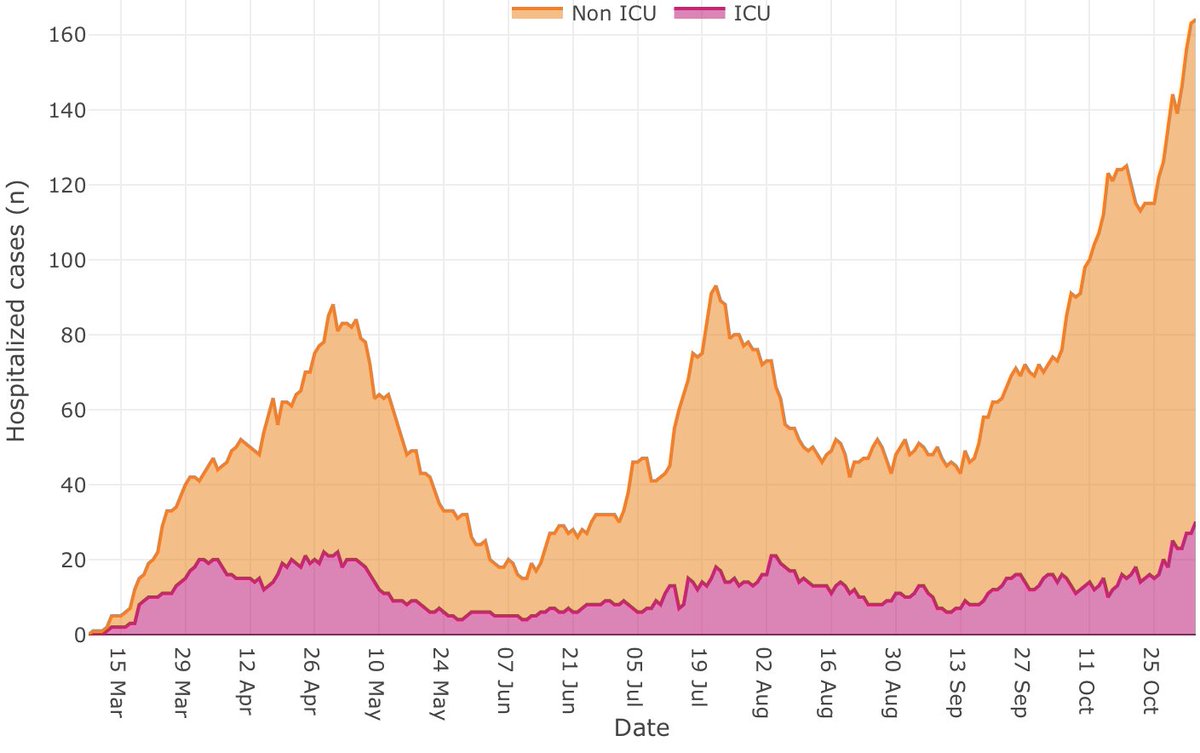
Some uncomfortable truths about ageism and #COVIDー19. The average life expectancy of someone who lives to 80 is 9 years, they however are most likely to die if infected, and should they get sick enough to need ICU support their mortality pushes 80% 

Consequently, they rarely are admitted to ICU. This means:
1. ICU occupancy lags hospital admission rates significantly and is an insensitive metric for healthcare capacity and strain.
2. These are preventable deaths that take significant number of quality years with them.
1. ICU occupancy lags hospital admission rates significantly and is an insensitive metric for healthcare capacity and strain.
2. These are preventable deaths that take significant number of quality years with them.
The bad news is that it is a statistical game. As hospital numbers increase, so will the proportion of people with favourable ICU outcomes who need our care. That’s when we start filling our beds. When those people get sick they take weeks of treatment.
And once they survive the ICU they continue to need augmented support in the hospital for an extended duration. Physiotherapy, occupational therapy, & nutritional support are all ongoing concerns. If we drop the ball there, they can bounce back to an already full ICU.
This situation is preventable. Our hospitalization numbers are a serious warning that mandatory measures are needed now. But while we wait for direction. Please do not go to work if you are sick. No more in person parties until there is a vaccine. Wear your mask around people. 🙏
• • •
Missing some Tweet in this thread? You can try to
force a refresh



